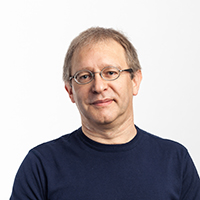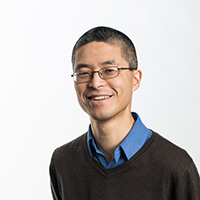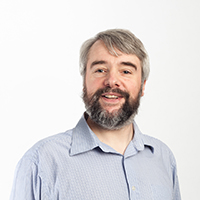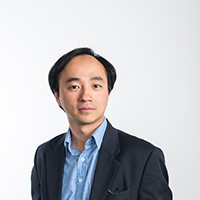Our Mathematics PhD/MPhil is a research programme enabling you to specialise in one of three areas, advancing wider understanding and shaping your profile as an expert mathematician.
Key information
| Starting date | Deadline for application |
|---|---|
Duration
Mathematics Postgraduate research degrees PhD/MPhil course Overview
You will conduct world class research for Mathematics at City in topics such as representation theory, mathematical physics or applied mathematics.
The research focus of our representation theory group involves conceptual understanding of algebraic, combinatorial, geometric and topological structure.
If you want to become a specialist in mathematical physics, you may undertake research in topics such as quantum field theory, quantum mechanics and string theory. Our expertise in techniques and methods originally developed within integrable systems creates a uniquely cohesive environment.
You will be embedded in our applied mathematics group if your research interest concerns how mathematical methods and models can be firmly applied to biological, social or fluid systems.
Our key research activities include applications of evolutionarily stable strategy, and the evolution of specific animal behaviour such as kleptoparasitism, evolutionary modelling on networks/graphs and magnetohydrodynamics.
Here you can find some examples listed of recent publications in Mathematics along with examples of PhD thesis in Mathematics.
Structure
The Department of Mathematics carries out research in the areas of representation theory, mathematical physics and applied mathematics.
The Representation Theory Group has a range of expertise in representation theory. Our focus is on gaining deep conceptual understanding of algebraic, combinatorial, geometric and topological structure.
The main areas of expertise are:
- Finite dimensional algebras
- Symmetric groups and Hecke algebras
- Representations of finite and algebraic groups
- Brauer and other diagram algebras
- Triangulated categories and dg categories
- Fusion systems
- Operads and homotopy algebras.
The Mathematical Physics Group's research activities are concentrated on topics in quantum mechanics, quantum field theory and string theory aiming at deeper insights into the quantum world.
The main research focus is on:
- The form factor programme,
- Non-Hermitian systems with antilinear symmetry
- Non-commutative spacetime structures
- String and M-theory, gauge/string correspondences with less than maximal supersymmetry
- Calabi-Yau manifolds
- Spintronic systems
- Graphene and nanostructures.
The Applied Mathematics Group uses rigorous mathematical methods and models in very concrete applications to biological, social and fluid systems.
The main research activities focus on:
- Applications of evolutionarily stable strategy
- Evolution of specific animal behaviour
- Modelling of processes of cultural evolution
- Evolutionary modelling on networks/graphs
- Magnetohydrodynamics and effects of temperature on the stability properties of the sun.
For full details about the City PhD programme structure, please see the Guide for Research Students.
Requirements
Entry requirements
A good first class degree in Mathematics or Physics from a UK university or a recognised equivalent from an overseas institution. Some subjects also require an appropriate Masters qualification.
English requirements
For applicants whose first language is not English, proof of English language proficiency will be required. We require a minimum IELTS overall score of 6.5 with a minimum of 6.0 in each of the four components.
Please note that the UK Border Agency currently requires us to confirm that you are at level B2 or above in all components of English before issuing visa documents.
For more information see our English language proficiency requirements at City.
Visa requirements
If you are not from the European Economic Area / Switzerland and you are coming to study in the UK, you may need to apply for a visa or entry clearance to come to the UK to study.
The way that you apply may vary depending on the length of your course. There are different rules for:
- Students on courses of more than six months
- Students on courses of less than six months
- Students on a pre-sessional English language course.
For more information see our main Visa page.
Some applicants may require an ATAS (Academic Technology Approval Scheme) certificate before joining a course. ATAS is a certificate issued by the Foreign and Commonwealth Office (FCO), which gives you security clearance to study certain postgraduate programmes at City, University of London.
Non-EEA students who choose to study certain subjects at MSc or MEng or PhD level in the UK have to apply for and receive clearance under the ATAS scheme regardless of if they are required to apply for a Student visa or not.
For more information see Applying for an Academic Technology Approval Scheme (ATAS) certificate.
Fees and funding
Full-time Home/UK:£4,770 per year
Part-time Home/UK:£2,390 per year
Full-time International:£15,920 per year
Part-time International:£7,960 per year
Fees for doctoral candidates are charged annually and cover registration, supervision and examination.
Fees are subject to review each year and may vary during your period of registration. Where applicable, fees for City's programmes will be subject to inflationary increases in each academic year of study commencing in September. Our policy for these increases is set out in our terms and conditions of study.
External candidate study of this course costs £2,120 (UK) or £6,630 (Overseas/EU) for full time study and £1,060 (UK) or £3,315 (Overseas/EU for part-time study.
Funding
- EPSRC/STFC Grants
- City Research Fellowships
- 50% external funding matched by 50% City funding
Support for PhD study
Prospective students are encouraged to explore doctoral Grants and funding opportunities such as:
- School of Science & Technology Doctoral Studentships
- Research Council studentship awards, if available.
Our bursaries are non-repayable sums of money granted by the University, usually based on need.
Our loans are repayable sums of money granted by the University or other body.
Our scholarships are when the University pays towards your Study fees. You may also be eligible for further funding.
Postgraduate Doctoral Loans
The Government has introduced a new Postgraduate Doctoral Loans scheme which can provide a loan of up to £25,000.
This will be over three years to support study for a doctoral degree.
A Postgraduate Doctoral Loan can help with course fees and living costs while you study. It can be used alongside any other forms of support you may be able to receive.
For more information, please see our Postgraduate Doctoral Loans page.
Additional expenses
Some of our degrees may involve additional expenses which are not covered by your tuition fees. Find out more about additional expenses.
Academic support
City has a well-established structure and processes to support your research.
Supervision
Research Students are assigned to a lead and second supervisor within a Research Group. They are strongly encouraged to widen their horizons by attending our weekly research seminars in-house and at institutions in London. For example the London triangle seminars focus mainly on aspects of string theory and the London Algebra Colloquium.
Specialised courses are delivered by the London Taught Course Centre (LTCC). They offer 14 basic courses and 15 advanced courses, each with a typical length of ten hours. Students are expected to attend 3-4 courses per year, ensuring a minimum of 100 hours training during their studies. They are required to take an examination at the end of the year.
Students participate in theme-oriented study groups, journal clubs and present their own work in a seminar after the first year. They are encouraged to present their work at national and internal schools, workshops and conferences.
Support is provided by research grants and the Department's travel budget. After the first year the Department offers the opportunity for PhD students to gain teaching experience and improve their communication skills by tutoring undergraduate students.
Assignments depend on progression and are co-ordinated by the Head of Department in liaison with supervisors.
Research Environment
City provides broad training on research methods and communication and presentation skills. We also provide an introduction to the research degree framework and online research skills support. Research students benefit from two researcher development days per year and an annual research symposium.
Student progression is closely monitored by the School's senior tutor for research. This is done through annual progress reports and by means of a recently introduced software system (the Research and Progress platform). The use of this software is mandatory for both supervisors and students.
The system involves PhD students in the management of their own research projects with a flexible approach according to individual student needs.
Key milestones are recorded, with required reporting on at least four meetings per term, an initial six-month report, an annual progress report, details of progression from MPhil to PhD status, intention to submit and transfer to writing-up status no later than year four.
The City Doctoral College can provide more information about graduate degrees.
How to apply
We accept applications on an ongoing basis for entry in July and October. Please see the requirements section above for eligibility criteria.
If you are applying for a specific scholarship or studentship, please make this clear within your application. Your scholarship/studentship will then be considered alongside your application. Please note, individual scholarships and studentships may have specific application deadlines.
It is essential that you contact a member of staff in the department you are interested in. Here you can discuss your ideas for research (research proposal). Unfortunately, we will not be able to consider your application without this pre-requisite.
Details of relevant academic staff can be found on our Department pages.
You are advised to submit your application at least 12 weeks before your proposed start date. We can then consider and process your application.
Supporting documents
To apply online, an applicant will need to submit the following supporting documents:
- Research proposal: The Research Proposal should be a maximum of 3 sides A4. See guidance on writing your research proposal. The proposal needs to be discussed with your potential supervisor. See guidance on writing your research proposal
- Copies of degree certificates and transcripts – original will be requested before an offer is made
- Official work e-mail addresses (not private ones) for two referees (one of which must be an academic)
- Proof of English language proficiency (if applicable).
- Evidence of sponsorship (if applicable).
Once you have identified a supervisor who will accept to guide through your research, please submit an application.
Apply now
-
Select one of the available starting dates to start your application.
-
Select one of the available starting dates to start your application.
Apply now
Full-time
Part-time
For further application enquiries please contact our PGR enquiries team.
Find a supervisor
See our full list of academic staff and potential supervisors in Department of Mathematics.




